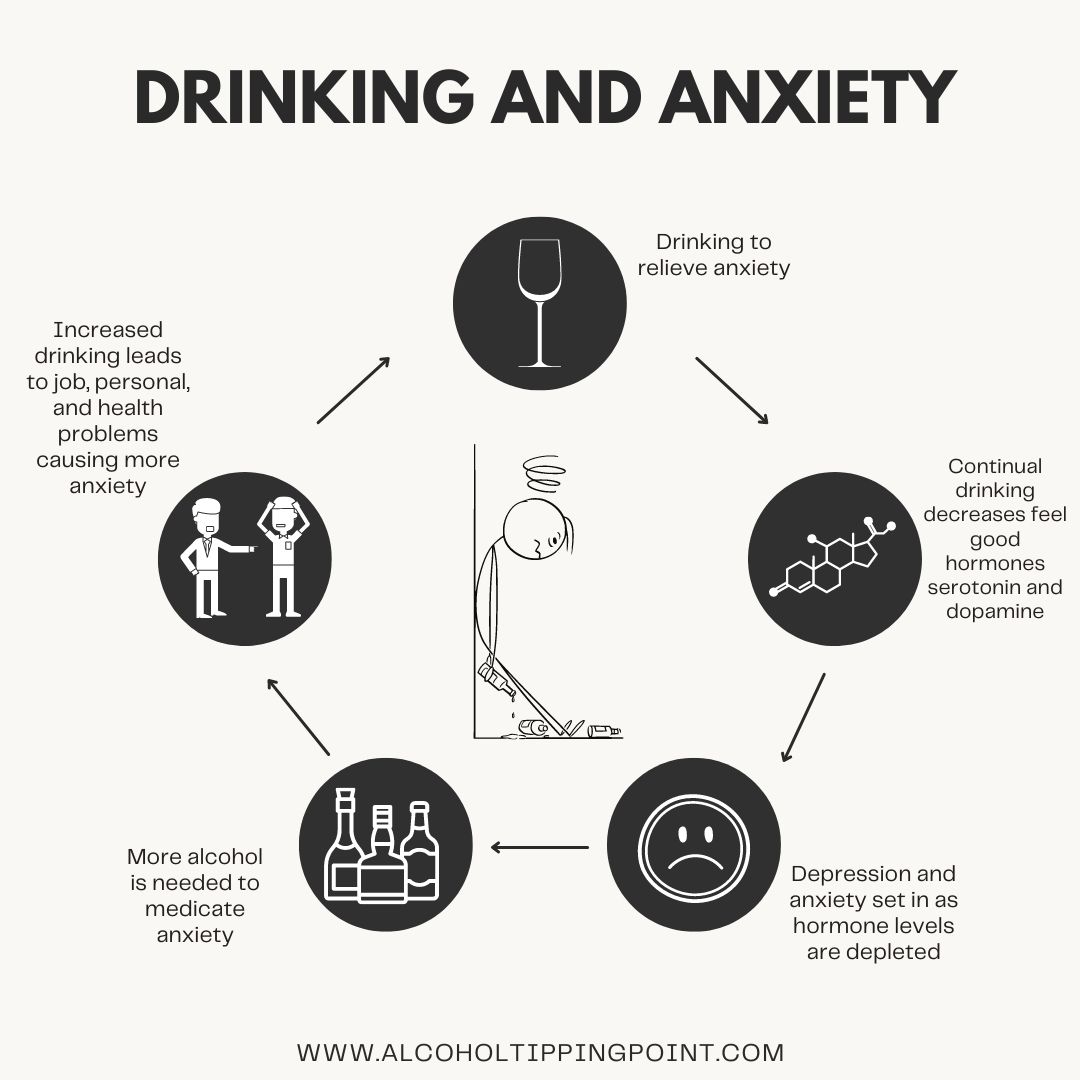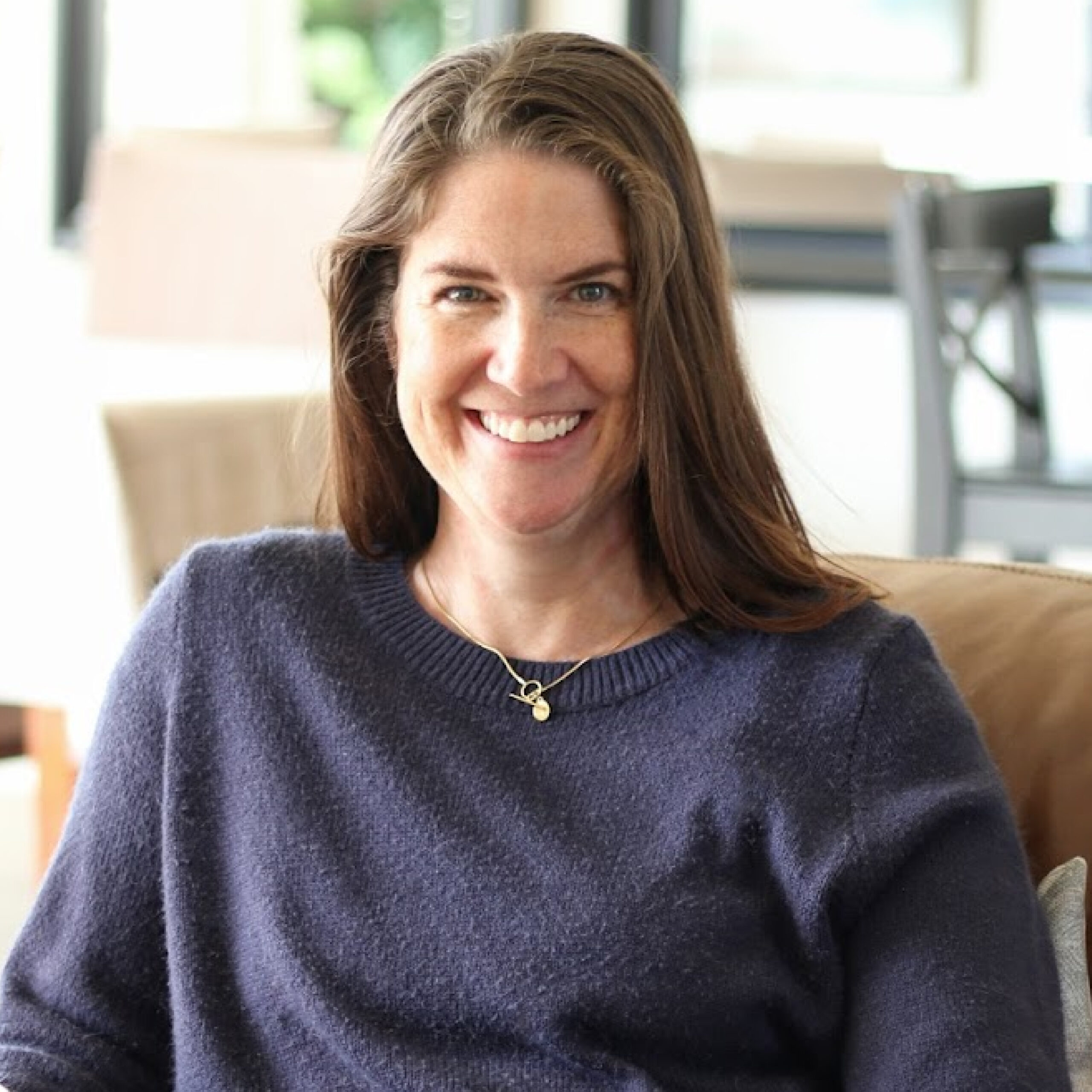If you’ve ever woken up the night after drinking with your heart racing, mouth sticky and a general feeling of anxiety and uneasiness, you've experienced the crushing blow of hangxiety - the term coined to describe feeling anxious while hungover.
It seems like a cruel twist that something you drink for relaxation could cause such an opposite effect of edginess and angst the next day.
Why Does Alcohol Cause Anxiety After Drinking?
Although we don’t think of it much in this way, alcohol is a drug. It’s a chemical called ethanol.
There are four types of alcohol, however, the only one suitable for human consumption is ethanol. The other types of alcohol are so toxic that even one sip would lead to death.
Even the alcohol we consume can be lethal in large quantities. That’s why it’s diluted into the drinks we consume like wine and hard liquor.
How Does Alcohol Interact With Our Brain Chemistry?
Alcohol is considered both a depressant and a stimulant.
The depressive effect of alcohol causes the slowdown of brain activity. It leads to that calming, buzzed feeling of being intoxicated.
When your brain receives this chemical depressant, it sends your balance out of order. To counteract the depressant, your brain automatically releases a stimulant.
The stimulants can leave you feeling anxious, craving something to take away the uneasy feeling. So, you have another drink, and you feel more relaxed. Now the depressant is back, your body needs to release stimulants again. It’s a repetitive cycle.
Let's look closer at how this affects low mood and anxiety.
You can follow along in the picture starting with drinking to relieve anxiety.

So, you drink to reduce anxiety.
When you keep drinking, you start to deplete the serotonin in your brain. Serotonin is a feel-good neurotransmitter that helps naturally reduce anxiety. You’re getting less of your feel-good chemicals, which can lead to low mood as serotonin levels are decreased even more.
You feel bad and anxious, so you drink again.
As you build a tolerance, you need even more alcohol to address your anxiety. You start drinking more, which can affect your work and relationships, leading to higher levels of anxiety.
When you feel anxious, drinking helps relieve it because alcohol is a depressant. Then the whole cycle repeats itself.
The anxiety after drinking occurs when your brain overcompensates for the depressive effects of alcohol and releases too many stimulants - this leads to feeling anxious after drinking both the next day and in the long-term.
If you feel you’re struggling with anxiety, and you’ve been drinking more than you like, consider taking a break from drinking. Many people find their anxiety symptoms dramatically reduce simply by removing alcohol.
How Can You Change Your Drinking Habits?
- Find support and community. There are many online and in person communities to support your decision to change your drinking. Reddit, Alcoholics Anonymous, Al-Anon, SMART Recovery and Recovery Dharma are all places to find support.
- Use tools from organisations such as Drinkaware and Rethinking Drinking.
- Consider therapy, counseling, or coaching. Finding a professional who specializes in drinking problems can be a valuable choice.
- Talk with your healthcare provider about medication options. There are medications available to help you manage your drinking cravings.
- Take a 10 or 30-day break. Taking a break from alcohol has shown to not only improve your physical health but improve your mental and social wellbeing as well.
- Drinkline is the UK national alcohol helpline. If you're worried about your own or someone else's drinking, you can call this free helpline in complete confidence. Call 0300 123 1110 (weekdays 9am to 8pm, weekends 11am to 4pm).
- Use this website to find a treatment facility in the US.
- Always check with your medical provider to quit in the safest way.
Many people are choosing to give up drinking to improve their mental and physical health. The numerous benefits of not drinking alcohol include:
- Better sleep
- Less anxiety
- More energy
- Improved relationships
- Increased focus
Would removing alcohol from your life perhaps improve it? If the answer is yes or if you don’t know, why not see what it’s like to take a break? Practice not drinking and see how different your life can be.
Self-Guided Support for Anxiety
Research shows that self-help materials are often enough for people to overcome mild to moderate mental health difficulties without professional support.
If you’re interested in a self-guided program that includes tools from CBT and ACT, be sure to check out The Mental Wellbeing Toolkit. It's "like 10 therapy sessions in one."

About Deb
Deb Masner is the founder of the Alcohol Tipping Point - a place to find free resources, tools, and tips to help you change your drinking. Deb runs 30 Day Dry Months where she helps people practice not drinking.She's a registered nurse, certified Health and Wellness Coach, SMART recovery facilitator and alcohol-free badass.
Check out her website, Instagram and podcast. Contact her at deb@alcoholtippingpoint.com.

